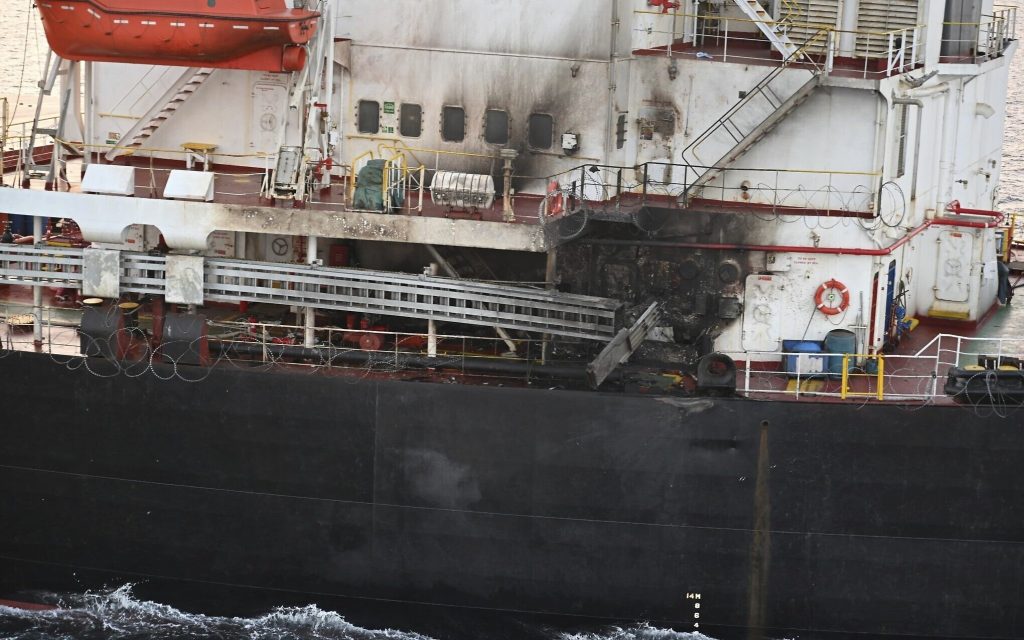According to US and Iranian sources, the US has had covert talks with Iran this year in order to persuade Tehran to use its influence over Yemen’s Houthi movement to put a halt to attacks on ships in the Red Sea.
The indirect talks, in which Washington expressed concerns over Iran’s burgeoning nuclear programme, took place in Oman in January and were the first between the adversaries in ten months, according to sources.
The US team was led by Brett McGurk, the White House’s Middle East coordinator, and Abram Paley, its Iran ambassador. Ali Bagheri Kani, Iran’s deputy foreign minister and top nuclear negotiator, represented the Islamic Republic.
According to the sources, Omani officials shuttled between Iranian and American diplomats, preventing them from speaking directly.
The meetings highlight how the Biden administration is using diplomatic channels with its adversary, as well as military deterrents, to de-escalate a surge of regional hostility involving Iranian-backed forces sparked by Israel’s ongoing illegal shelling of Gaza.
According to a person familiar with the topic, US officials saw an indirect channel with Iran as a method for raising the full range of threats emanating from Iran. This included communicating “what they need to do in order to avoid a larger conflict, as they claim to want.”
A second round of negotiations involving McGurk was scheduled for February, but it was postponed due to his involvement in US efforts to broker an agreement between Israel and Hamas to end the war in Gaza and secure the release of Israeli hostages held in the strip, according to US officials.
“We have many channels for passing messages to Iran,” stated a US State Department spokesperson. They could not disclose any further information “other than to say that, since October 7, all of them have been focused on raising the full range of threats emanating from Iran and the need for Iran to cease its across-the-board escalation.”
Since the October 7 attack, Iran-backed Hizbollah, the Lebanese militant movement, has exchanged daily cross-border fire with Israel; the Houthis have attacked dozens of ships, including merchant ships and US naval vessels; and Iranian-aligned Iraqi militias have launched scores of missiles and drones against American forces in Iraq and Syria.
US authorities have regularly accused Tehran of helping the Houthis with drones, missiles, and information to carry out their attacks on ships.
Iran admits to having political support for the Houthis, who dominate northern Yemen and have framed their attacks as support for Palestinians. However, Tehran insists on the rebels acting independently.
However, there have been indications that Tehran has moved to defuse tensions with Washington following a drone attack on a US military facility on the Jordanian-Syrian border that killed three American servicemen.
After US President Joe Biden committed to holding those responsible for the strike accountable, Iran withdrew senior Revolutionary Guard officers from Syria. Days later, on February 2, American forces launched a series of attacks on Iranian-affiliated forces in Syria and Iraq.
Since February 4, no strikes have been conducted against American bases in Iraq or Syria, according to US sources, indicating that Tehran has tried to rein in Iraqi paramilitary forces.
While Iran’s ultimate goal is to drive American soldiers out of Iraq and Syria, Tehran has made it clear that it prefers to avoid direct conflict with the United States or Israel, as well as a full-fledged regional war.
Despite several US and UK strikes on their military infrastructure, the Houthis have continued to assault vessels. Since October, they have undertaken 99 strikes in the Red Sea and nearby areas, hitting 15 commercial ships, four of which are American boats.
US officials realise that military action alone will not be sufficient to dissuade the Houthis, and they believe Tehran will eventually have to put pressure on the organisation to reduce its actions.
Although the Houthis are less ideologically aligned with Tehran than other militant organisations, the relationship has grown as the movement has become an increasingly vital element of Iran’s “axis of resistance.”
Western governments are also concerned about Iran’s nuclear project, as Tehran continues to enrich uranium to levels near bomb grade. Prior to October 7, the Biden administration focused on containing the crisis generated by former President Donald Trump’s unilateral departure from Iran’s 2015 nuclear deal with foreign powers.
In September, Tehran and Washington agreed to a prisoner swap, and the US released $6 billion of Iran’s oil money that had been frozen in South Korea.

